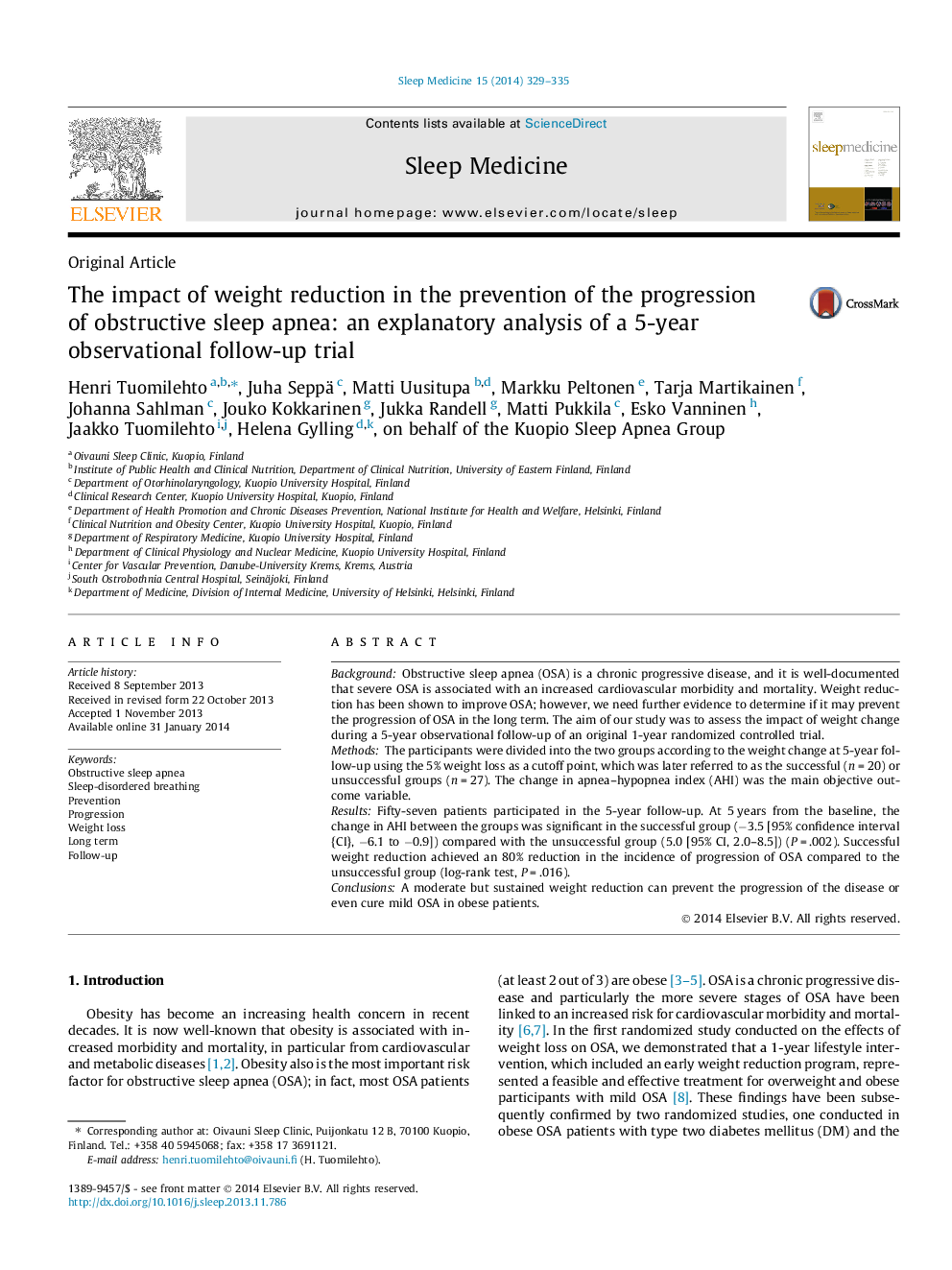| Article ID | Journal | Published Year | Pages | File Type |
|---|---|---|---|---|
| 6060992 | Sleep Medicine | 2014 | 7 Pages |
Abstract
BackgroundObstructive sleep apnea (OSA) is a chronic progressive disease, and it is well-documented that severe OSA is associated with an increased cardiovascular morbidity and mortality. Weight reduction has been shown to improve OSA; however, we need further evidence to determine if it may prevent the progression of OSA in the long term. The aim of our study was to assess the impact of weight change during a 5-year observational follow-up of an original 1-year randomized controlled trial.MethodsThe participants were divided into the two groups according to the weight change at 5-year follow-up using the 5% weight loss as a cutoff point, which was later referred to as the successful (n = 20) or unsuccessful groups (n = 27). The change in apnea-hypopnea index (AHI) was the main objective outcome variable.ResultsFifty-seven patients participated in the 5-year follow-up. At 5 years from the baseline, the change in AHI between the groups was significant in the successful group (â3.5 [95% confidence interval {CI}, â6.1 to â0.9]) compared with the unsuccessful group (5.0 [95% CI, 2.0-8.5]) (P = .002). Successful weight reduction achieved an 80% reduction in the incidence of progression of OSA compared to the unsuccessful group (log-rank test, P = .016).ConclusionsA moderate but sustained weight reduction can prevent the progression of the disease or even cure mild OSA in obese patients.
Keywords
Related Topics
Life Sciences
Neuroscience
Neurology
Authors
Henri Tuomilehto, Juha Seppä, Matti Uusitupa, Markku Peltonen, Tarja Martikainen, Johanna Sahlman, Jouko Kokkarinen, Jukka Randell, Matti Pukkila, Esko Vanninen, Jaakko Tuomilehto, Helena Gylling, Kuopio Sleep Apnea Group Kuopio Sleep Apnea Group,
